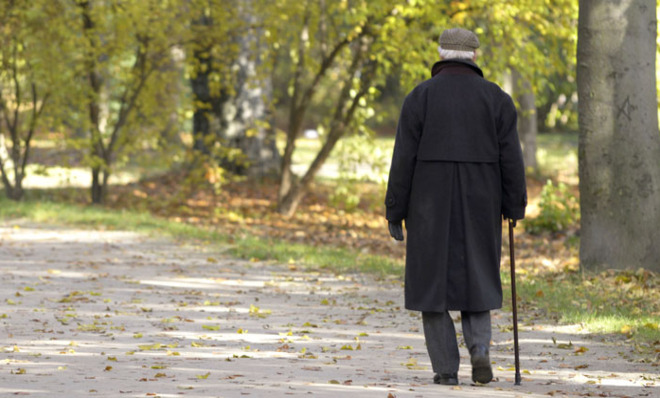The joy of living beyond 75
Plenty of octogenarians are vibrant, sharp, and full of joy — despite the warnings of Ezekiel Emanuel


A free daily email with the biggest news stories of the day – and the best features from TheWeek.com
You are now subscribed
Your newsletter sign-up was successful
When his energy began to ebb, and arthritis pain eroded his joie de vivre, my grandfather told me he was ready to die. "I've had a good life, but it's enough," he said. "It's time." A few months later, he died peacefully at home, before any hospital could get hold of him. Pop was 95 — two decades beyond the age that the renowned physician Ezekiel Emanuel has decided is the optimal time to exit, lest age render us "feeble, ineffectual, even pathetic." During the last 20 years of his life, my grandfather was none of those; everyone who knew him admired his vigor, his warmth, the twinkle in his eye. Pop extracted great richness from the simplest things. Time spent with his children and grandchildren and great-grandchildren. Playing cards and kibitzing with his buddies. His long, daily walks to the stores. He loved food — selecting it, cooking it, eating it. An immigrant who was orphaned in childhood and went to work in his teens, Pop never had much money or worldly success. But he was a natural Zen master, living in the moment, grateful for what he had. I learned a lot just by watching him live.
Most of us share Emanuel's fear of dementia, disability, and dependence — of living too long. But as a hyperkinetic overachiever, the good doctor wrongly presumes that a decline of any kind is an unbearable humiliation. Lessons await us at every stage of life; as our sense of our mortality sharpens, we have the opportunity to put our egos aside, truly savor our remaining time on this planet, and bestow our love and wisdom on our successors. With luck, that process can continue long after you turn 75. L'chaim, Zeke.
A free daily email with the biggest news stories of the day – and the best features from TheWeek.com
The Week
Escape your echo chamber. Get the facts behind the news, plus analysis from multiple perspectives.

Sign up for The Week's Free Newsletters
From our morning news briefing to a weekly Good News Newsletter, get the best of The Week delivered directly to your inbox.
From our morning news briefing to a weekly Good News Newsletter, get the best of The Week delivered directly to your inbox.
William Falk is editor-in-chief of The Week, and has held that role since the magazine's first issue in 2001. He has previously been a reporter, columnist, and editor at the Gannett Westchester Newspapers and at Newsday, where he was part of two reporting teams that won Pulitzer Prizes.
-
 Tourangelle-style pork with prunes recipe
Tourangelle-style pork with prunes recipeThe Week Recommends This traditional, rustic dish is a French classic
-
 The Epstein files: glimpses of a deeply disturbing world
The Epstein files: glimpses of a deeply disturbing worldIn the Spotlight Trove of released documents paint a picture of depravity and privilege in which men hold the cards, and women are powerless or peripheral
-
 Jeff Bezos: cutting the legs off The Washington Post
Jeff Bezos: cutting the legs off The Washington PostIn the Spotlight A stalwart of American journalism is a shadow of itself after swingeing cuts by its billionaire owner
